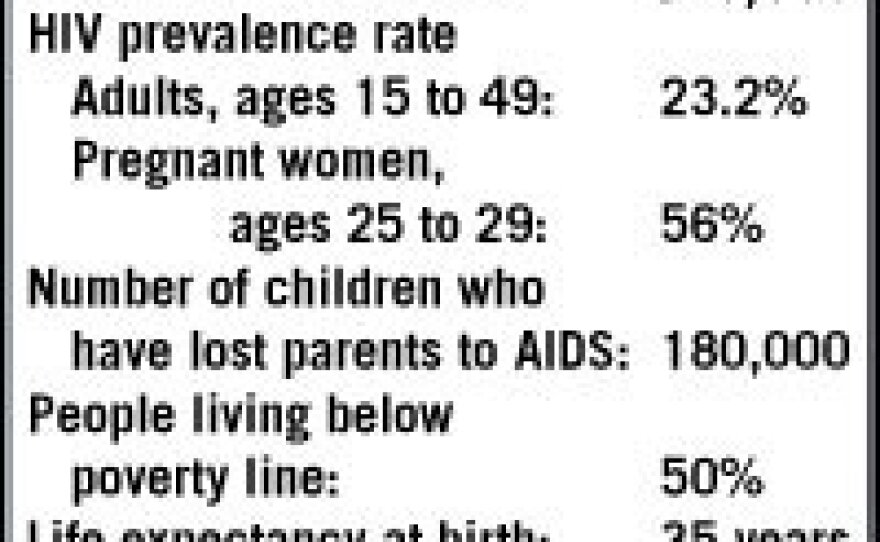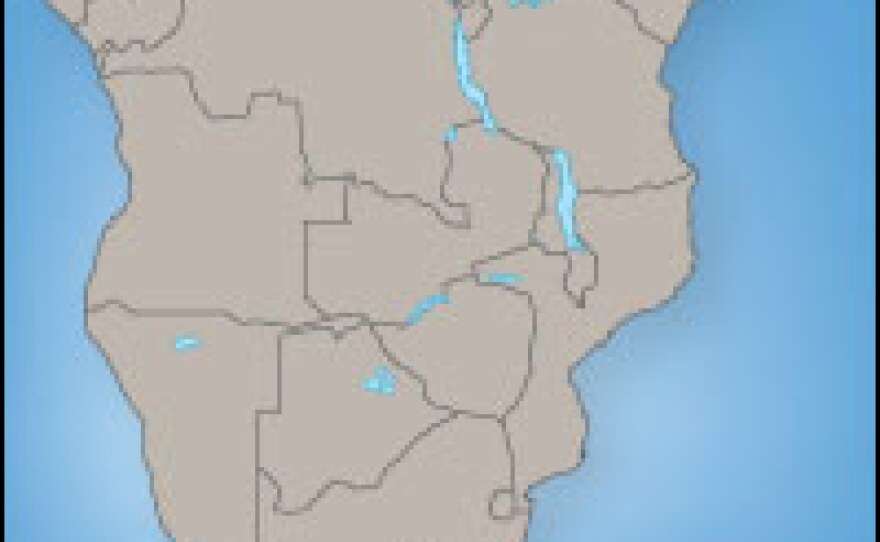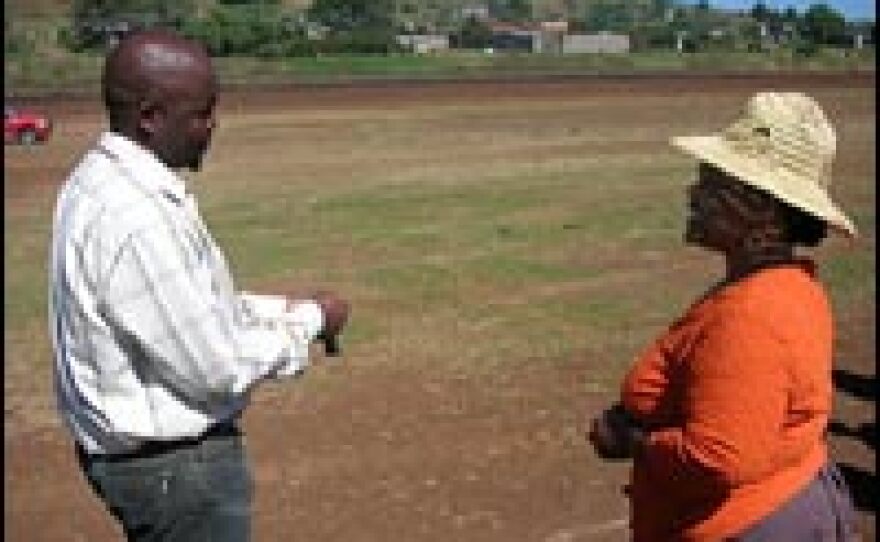



At Holy Trinity High School in the tiny village of Moyeni, soccer and other activities are being organized to help ease the pain of the children orphaned by the AIDS pandemic.
An estimated 180,000 children in the tiny mountain kingdom of Lesotho have lost parents to AIDS. Principal Ernest Phelane says that a parent is buried every weekend. Nearly half of the students in his school are orphans.
"When they first come to school, the first two months we have to do the counseling because every time you try to talk to them, they cry," Phelane says.
He began to worry about one student because she was always late for school and seemingly exhausted. He soon discovered that Ntjana is the head of her household — three sisters, ages 13, 11 and six. She is 15. Ntjana's father died of AIDS complications and her mother disappeared.
The principal says school officials have helped some orphans by boarding them at the school, but for those orphans with siblings, like Ntjana, this isn't possible.
Her aunt, Mapitso Zolase, tries to help out, on one occasion brewing and selling sorghum beer to buy shoes for Ntjana. But she has a family of her own to provide for, and times are tough.
Unemployment in Lesotho is estimated at more than 45 percent; more than half the population lives below the poverty line. And AIDS has destroyed the traditional extended family that for generations kept the concept of orphan out of African life.
AIDS has stretched the extended family beyond the breaking point.
The government hospital in Moyeni itself is a victim of the poverty that, like AIDS, has Lesotho by the throat. Lab facilities are scarce and nurses are leaving every month, but they aren't being replaced.
Dr. Mobashshar Hassan came here from Bangladesh hoping to make a difference. He says there are supposed to be five doctors at the hospital, but three left. The health professionals are leaving because of the low pay, which Hassan says is one-third what doctors earn in countries surrounding this landlocked Lesotho.
And the number of HIV-positive patients continues to rise. From July 2004 to March 2006, the hospital enrolled about 450 such patients. They are among the more than 320,000 people in Lesotho who are known to be living with HIV.
The Lesotho government has been praised for having one of the most ambitious HIV/AIDS initiatives on the continent. It is aimed at encouraging citizens to know their HIV/AIDS status.
But local officials are overwhelmed.
"The government has been doing everything in its power, but the pandemic is overtaking us," says Mapitso Panyane, the government's local official in the district encompassing Moyeni. "It's too much."
Copyright 2022 NPR. To see more, visit https://www.npr.org. 9(MDAzMjM2NDYzMDEyMzc1Njk5NjAxNzY3OQ001))






